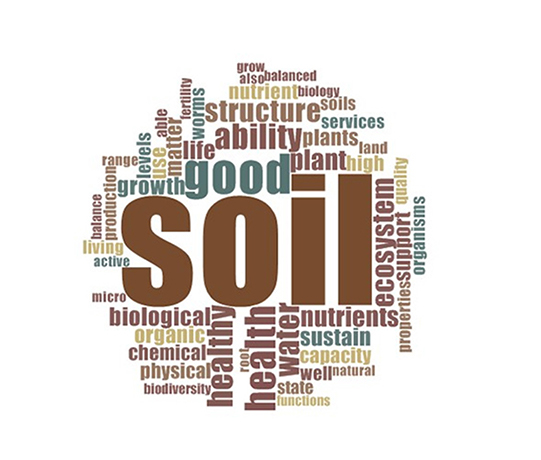| Funder | Collaborators | Duration |
|---|---|---|
| Ministry of Business, Innovation and Employment (MBIE) | Tumu Paeroa, Hua Parakore standards and certification, Te Waka Kai Ora, Māori industry groups, other CRIs, University researchers, selected Māori Trusts and Incorporations, Māori landowners, private consultants |
5 years 5 months
Start date: 01 Oct 2016 End date: 30 Mar 2022 |

Oneone ora, tangata ora – Expanding what soil health means
The MBIE-funded project Soil health and resilience: oneone ora, tangata ora aims to support the development of a longer-term and more comprehensive view of soil health and resilience; and to develop an integrated soil health framework that can be used by a wide range of end-users. It is important that this framework is flexible, to enable it to adapt to both technological and societal changes impacting on the primary sector.
The ongoing capacity of soil ecosystems to maintain the services they provide is fundamental to our economic, cultural, social and environmental well-being. We estimate that in economic terms, around 17% of NZ’s GDP depends directly on our soils, but the importance of soil to our social, cultural, and long-term environmental well-being is less well understood.
Current measures of soil health focus on short-term “dynamic” soil characteristics (such as pH and soil nutrients) that may be inadequate to assess long-term changes to soil health and resilience.
Also, present measures in Aotearoa-New Zealand do not recognise cultural perspectives, such as mātauranga Māori, which are very important considerations when defining and assessing soil health in our multicultural and pluralistic society.
The three major interacting objectives of the project are to:
- test long-term land-use sequences on different soils to gauge the effects of land-use intensification on soil properties in order to better define soil resilience;
- develop concepts of soil health from a Māori perspective;
- integrate cultural value systems and mātauranga Māori with new scientific knowledge and other forms of technical knowledge to articulate and express long-term effects of land use on soil ecosystems.
The overall goal is to develop a universal soil health framework that can be used by a wide range of end-users, from primary industry, landowners, iwi/hapū, to central and local government. This new innovative framework, based on blending science excellence and Māori knowledge and perspectives, will be designed to complement existing soil monitoring programmes.
Work to date has focussed on identifying monitoring sites, trialling analyses and aligning existing programmes (see diagram at end of section) through collaborative efforts to better achieve our goals. We have also begun our exploration of the concept “soil health and resilience” from a ‘kaupapa Māori’ – mātauranga Māori/Māori values based – perspective using Māori knowledge frameworks, concepts, and terms to define soil ecosystem health characteristics, pressure-state and impact indicators, and describe soil resilience characteristics from a Māori lens.
To accomplish this we are working with a large range of Māori organisations, including a number of iwi/hapū representatives and organisations, Tumu Paeroa, Hua Parakore standards and certification, Te Waka Kai Ora, Māori industry groups, other CRIs, University researchers, selected Māori Trusts and Incorporations, Māori landowners, and private consultants.
In June 2017 we conducted a survey, seeking input from a wide range of soil professionals, land owners and other end-users. By seeking diverse perspectives, the survey was intended to provide:
- a baseline understanding of the different ways people understand soil health and value soil as a resource
- information on which aspects of soil health are currently being monitored, and where gaps are perceived, and
- a network of interested parties who would like to keep in touch with progress in the project.
The survey resulted in 235 responses from every region of New Zealand, with 15% of respondents identifying as Māori. Of all respondents, 91% said soil was important or very important to them in their profession (just under 40% of respondents identified as farmers), and 85% of respondents strongly agreed that soil health was essential for both the economic and environmental well-being of New Zealand. 70% of respondants agreed or somewhat agreed that “Soil health is important to me from a cultural perspective”. A wide range of descriptions defined soil health (see word cloud), and considerable information was provided on which aspects of soil health are monitored and where gaps are perceived. Integration of Māori-world views on soil health with a traditional science approach (developed both from New Zealand and international collaborators) will facilitate productive and sustainable use of our soils.
Reports & publications
Stronge et al. (2020): A Well-Being Approach to Soil Health—Insights from
Aotearoa New Zealand. Sustainability 12, 7719. https://doi.org/10.3390/su12187719
Stronge et al. (2022): Achieving soil health in Aotearoa New Zealand through a pluralistic values‑based framework: mauri ora ki te whenua, mauri ora ki te
tangata. Sustainability Science, https://doi.org/10.1007/s11625-022-01269-x